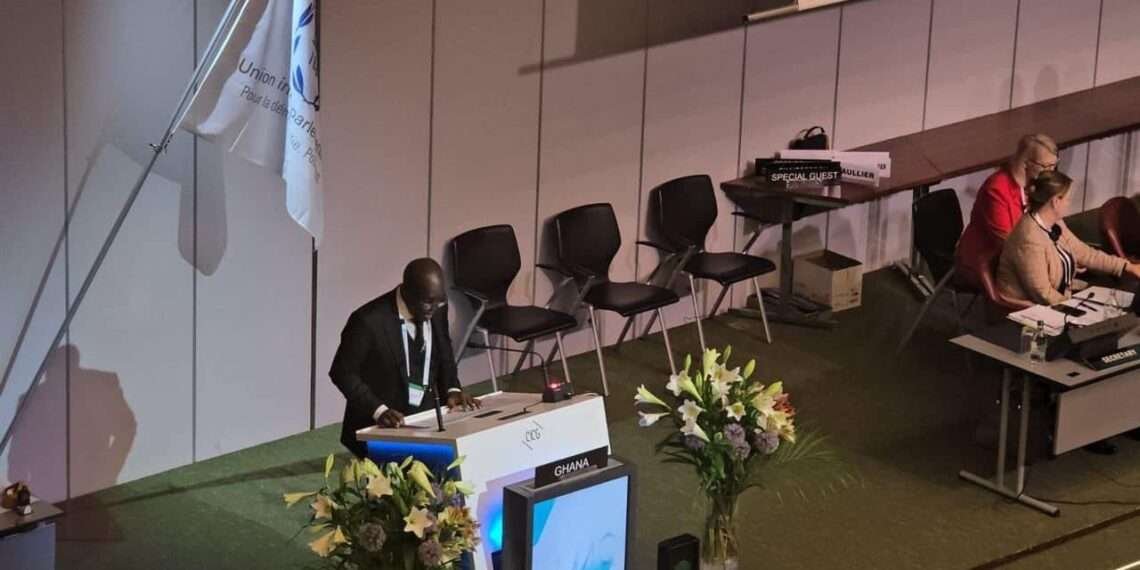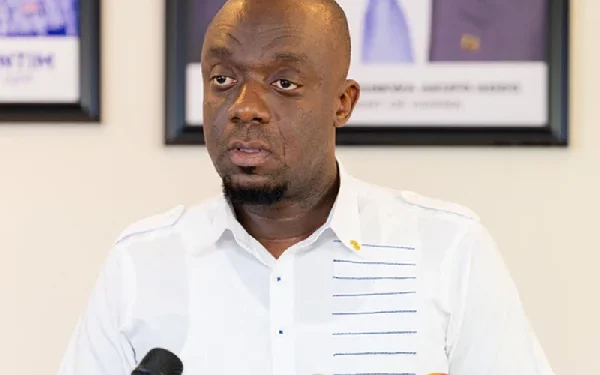In an increasingly interconnected world, the role of parliamentary diplomacy has become paramount in fostering peace, cooperation, and understanding among nations. Parliaments serve as platforms for dialogue, debate, and negotiations, creating opportunities to bridge differences and build lasting connections.
The Speaker of Ghana’s Parliament, Alban Bagbin, has urged the world to strengthen international cooperation at the international conference on parliamentary diplomacy.
Speaking at the ongoing 148th Assembly of the Inter-Parliamentary Union (IPU), Geneva, Switzerland, RT. Hon. Alban Bagbin noted that Parliament must seize the opportunity to reaffirm its shared commitment to building bridges for peace and understanding and transcending borders and differences to create a world that is more just, equitable, and harmonious for all.
“Hon. Chairperson, it is common knowledge that the 21st-century world in which we find ourselves is facing a myriad of complex challenges that seriously threaten global peace, security, and understanding, and therefore demand immediate attention. The ongoing conflicts in regions such as Syria, Yemen, the Great Lakes Area, the Balkans, the Korean Peninsula, the Sahel region, Ukraine and Russia, and the Hamas and Israel war, continue to cause immense suffering and displacement of people across borders while severely undermining stability and security on a global scale.”
RT. Hon. Alban Bagbin, Ghana’s Speaker of Parliament
Parliamentary diplomacy provides a platform for peaceful conflict resolution and mediation. Lawmakers can utilize their positions to bridge gaps between conflicting parties, facilitating negotiations and encouraging dialogue. By leveraging their diplomatic skills, parliamentarians can help de-escalate tensions and find common ground, ultimately working towards peaceful resolutions.
Speaker Alban Bagbin stressed that, in today’s interconnected world, where conflicts often transcend national borders and complex global challenges demand cooperative solutions, the role of parliamentary diplomacy is not just important but also crucial for building bridges toward peace and understanding.
He reiterated that the rise of violent extremism, fueled by ideologies of hate and intolerance, poses a significant threat to peace and stability, leading to terrorist attacks and sectarian violence in various parts of the world.
“Increasing polarization within societies, fueled by partisan politics and ideological divisions, is eroding social cohesion and severely hampering efforts to find common ground and address shared challenges. Widening economic disparities between rich and poor nations, as well as within countries, are exacerbating social tensions, fueling resentment, and contributing to instability and conflicts across many countries.”
RT. Hon. Alban Bagbin, Ghana’s Speaker of Parliament
Building Bridges for Peace and Understanding
Parliaments serve as forums where lawmakers engage in constructive dialogue, allowing different viewpoints to be heard and understood. Through debates, committees, and working groups, parliamentarians can discuss pressing global issues, such as conflict resolution, human rights, climate change, and economic cooperation. These discussions help shape policies and foster a sense of cooperation among nations.
“Parliaments serve as vital platforms for diverse voices to converge, discuss policies, advocate for constituents, and uphold shared values. By extending these deliberations onto the global stage, parliamentary diplomacy enriches diplomatic discourse with democratic legitimacy and grassroots representation. For parliamentary diplomacy to successfully achieve its goals, it is important to strike a balance between reality and perception.”
RT. Hon. Alban Bagbin, Ghana’s Speaker of Parliament
Additionally, Parliaments serve as forums where lawmakers engage in constructive dialogue, allowing different viewpoints to be heard and understood.
Bagbin underscored the importance of open communication and dialogue in bridging divides and fostering collaboration. He said, “The emergence of new forms of diplomacy, with parliamentary diplomacy being a prime example, reflects the changing landscape of international relations.”
Through international parliamentary organizations and networks, lawmakers can exchange experiences and share best practices to strengthen democratic institutions, promote human rights, and advocate for the rule of law. These efforts contribute to a more inclusive and just global society.
Moreso, Parliamentary diplomacy also plays a crucial role in promoting economic cooperation and development. Lawmakers can advocate for trade agreements, investment opportunities, and development assistance programs that foster economic growth and poverty reduction. By working together, parliaments can create an enabling environment for sustainable development and prosperity.
Parliamentary diplomacy serves as a powerful tool in building bridges for peace and understanding among nations. It fosters dialogue, builds trust, and promotes cooperation; ultimately contributing to a more stable and harmonious global order.
The importance of parliamentary diplomacy in shaping international relations cannot be overstated. It is through these diplomatic efforts that lawmakers can work together to create a better future for humanity.
READ ALSO: Bagbin Calls for ‘Ethical Standards’ Among Political Leaders





















